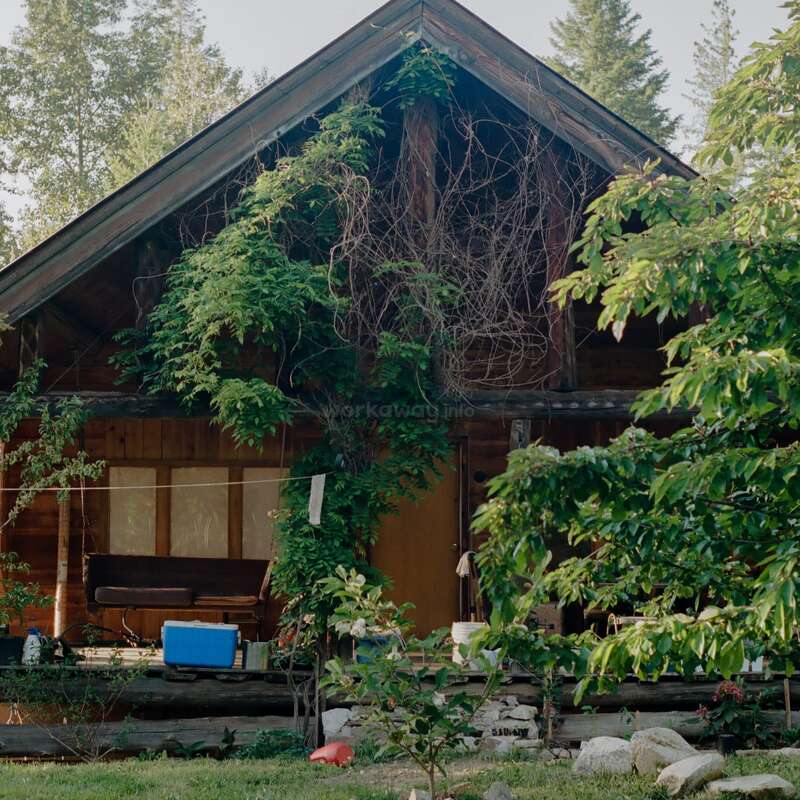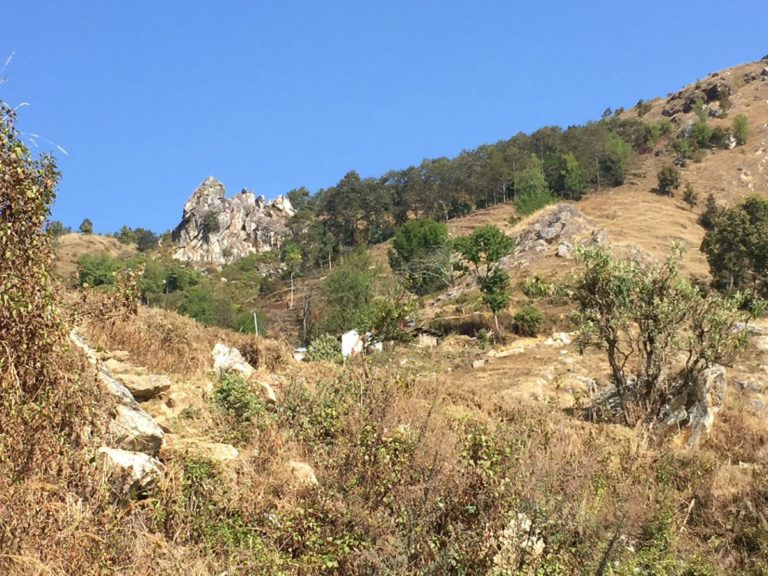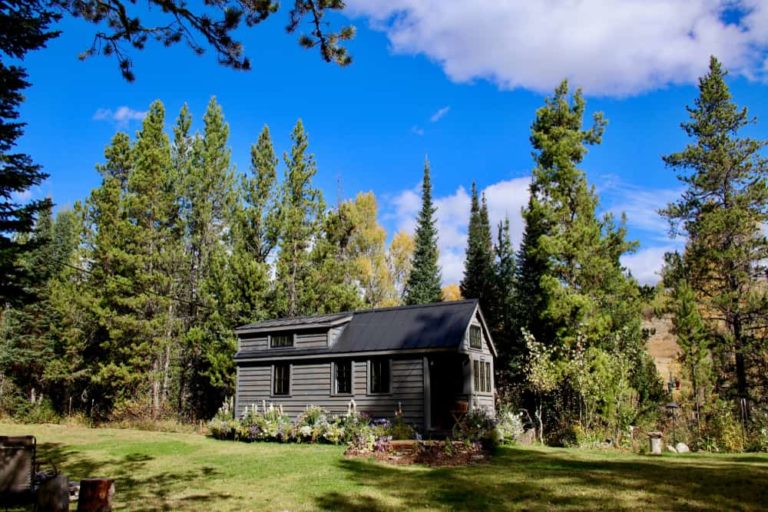Embracing off-grid living can be a powerful step towards a more sustainable future.
By disconnecting from public utilities and embracing renewable energy sources like solar and wind power, individuals and families can significantly reduce their carbon footprint and reliance on non-renewable resources.
This not only helps to mitigate the negative impact of human activities on the environment but also provides an opportunity to adopt a more self-sufficient lifestyle.
We’ll explore various aspects of off-grid living and offer actionable information for those looking to make the transition.
Energy Independence
Off-grid living allows you to generate your own energy through solar, wind, or hydroelectric power, reducing your reliance on the grid and the associated carbon emissions.
By generating your own energy through solar, wind, or hydroelectric power, you can significantly reduce your reliance on the grid and the associated carbon emissions.
This not only helps to mitigate the negative impact of your energy usage on the environment, but it also allows you to take control of your energy consumption and reduce your reliance on external power sources.
One of the most significant benefits of off-grid living is the ability to produce your own renewable energy.
Solar panels, wind turbines, and hydroelectric systems can all be used to generate electricity without relying on the grid.
This not only reduces your carbon footprint but also provides a reliable source of energy, even in areas with unpredictable weather conditions.
With the right equipment and infrastructure in place, you can ensure a consistent supply of energy, free from the burden of monthly utility bills and the constraints of grid-connected living.
Moreover, off-grid living allows you to take a more proactive approach to managing your energy consumption.
By leveraging renewable energy sources, you can reduce your reliance on fossil fuels and minimize your impact on the environment.
This not only benefits the environment but also provides a more cost-effective solution to energy consumption in the long run.
With the help of smart home technologies and energy-efficient appliances, you can optimize your energy usage and make the most of your off-grid living setup.
Off-grid living offers a unique opportunity to reduce your reliance on the grid and the associated carbon emissions.
By generating your own energy through renewable sources, you can take control of your energy consumption and minimize your impact on the environment.
With the right equipment and infrastructure in place, you can ensure a consistent supply of energy and optimize your energy usage for a more sustainable and cost-effective living experience.
Water Conservation
Off-grid living often involves harvesting rainwater and using greywater systems, reducing the amount of potable water needed and conserving this precious resource.
By harnessing the power of rainwater and greywater, off-grid individuals and families can significantly reduce their reliance on precious potable water.
Rainwater collection systems, such as roof-based gutters and downspouts, can capture and store rainwater for non-potable uses like flushing toilets, washing clothes, and irrigating gardens.
Greywater systems, which utilize the wastewater generated by sinks, showers, and washing machines, can also be employed to irrigate landscaping and fertilize plants.
By using these systems in conjunction with efficient appliances and water-saving practices, off-grid residents can minimize their potable water usage and conserve this precious resource.
Moreover, rainwater and greywater systems can be designed and installed with minimal upfront costs and maintenance, making them an accessible and sustainable option for those looking to reduce their environmental footprint.
Waste Minimization
Off-grid living encourages a minimalist lifestyle, reducing waste and the need for packaging materials. Composting toilets and waste management systems also reduce the amount of waste sent to landfills.
Living off the grid not only means being self-sufficient in terms of energy and water, but it also encourages a minimalist lifestyle that reduces waste and the need for packaging materials.
By adopting off-grid living, individuals can reduce their environmental impact by minimizing their consumption of disposable products and reducing waste.
For example, composting toilets and waste management systems can help reduce the amount of waste sent to landfills.
Composting toilets convert human waste into nutrient-rich compost that can be used to fertilize plants, thus reducing the amount of waste that needs to be disposed of.
Off-grid living often involves using eco-friendly materials such as recycled materials, bamboo, and straw for construction, further reducing the need for packaging materials.
By adopting off-grid living, individuals can significantly reduce their carbon footprint and contribute to a more sustainable future.
Local Food Production
Off-grid living often involves gardening and small-scale food production, reducing the carbon footprint of food transportation and supporting local ecosystems.
Off-grid living often involves gardening and small-scale food production, reducing the carbon footprint of food transportation and supporting local ecosystems.
By growing our own food, we can significantly minimize the amount of energy required to transport and store food, which in turn reduces our carbon footprint and supports sustainable agriculture.
Small-scale food production allows us to work with nature and utilize local resources to create a closed-loop system that relies on natural processes and minimal external inputs.
This approach not only provides us with a reliable source of fresh, nutritious food but also helps to preserve the integrity of local ecosystems and promote biodiversity.
With a little bit of planning and effort, we can create a resilient and regenerative food system that is tailored to our specific needs and the unique conditions of our local environment.
By choosing to grow our own food and engage in small-scale food production, we can not only improve our own well-being but also contribute to a more sustainable and thriving planet.
Self-Sufficiency
Off-grid living encourages self-sufficiency, reducing dependence on external systems and promoting a more resilient and sustainable way of life.
Living off-grid not only reduces your dependence on external systems, but it also promotes self-sufficiency and a more resilient and sustainable way of life.
By producing your own food, energy, and water, you become less reliant on external infrastructures that may fail or be unavailable during times of crisis.
This self-sufficiency also fosters a greater sense of independence and control over your own life, allowing you to make choices that align with your values and priorities.
Moreover, off-grid living encourages sustainable practices that minimize waste and maximize resource efficiency.
For example, you may compost your food waste and use it as fertilizer for your garden, or harvest rainwater for irrigation and household use.
By adopting these practices, you can significantly reduce your ecological footprint and contribute to a more sustainable future.
Off-grid living can promote a more resilient way of life by encouraging you to be more self-reliant and adaptable.
By growing your own food and managing your own resources, you can better prepare for unexpected events such as power outages, natural disasters, or economic downturns.
This resilience can also foster a greater sense of community and collaboration, as you may work together with your neighbors to share resources and knowledge.
Off-grid living offers a range of benefits that promote self-sufficiency, sustainability, and resilience.
By adopting this lifestyle, you can reduce your dependence on external systems, minimize your ecological footprint, and prepare for unexpected events.
Whether you’re looking to live off the grid full-time or simply incorporate more sustainable practices into your daily life, the rewards of off-grid living are undeniable.
Reduced Consumption
Off-grid living often involves reducing consumption of non-renewable resources, such as fossil fuels, and promotes a more mindful approach to resource use.
Off-grid living is a lifestyle that embraces self-sufficiency and minimizes the reliance on non-renewable resources.
By reducing consumption of fossil fuels and promoting a more mindful approach to resource use, individuals can live a more sustainable and environmentally conscious life.
This may involve using solar or wind power for energy, collecting rainwater for irrigation and drinking, and implementing efficient water conservation measures.
Off-grid living often involves growing one’s own food and using local, organic materials for building and furnishing, reducing the carbon footprint associated with transportation and industrial processes.
By adopting these practices, individuals can not only reduce their environmental impact but also save money on utility bills and gain a greater appreciation for the natural world.
Increased Resilience
Off-grid living can increase resilience to natural disasters and power outages, as well as provide a sense of security and independence.
Off-grid living can be an empowering and resilient lifestyle choice, especially in the face of natural disasters and power outages.
By relying on renewable energy sources like solar and wind power, and implementing sustainable water harvesting and waste management systems, off-grid households can maintain a high quality of life even when the grid is down.
Off-grid living can provide a sense of security and independence, as residents are less reliant on outside utilities and can be more self-sufficient in their daily lives.
For example, off-grid homes can use composting toilets and greywater systems to reduce their water consumption and waste management needs, reducing their reliance on municipal services and creating a more closed-loop system.
By growing their own food and collecting their own rainwater, off-grid households can also become more food and water secure, even in the face of extreme weather events.
Overall, off-grid living can be a powerful tool for building resilience and sustainability in the face of an uncertain future.
Community Building
Off-grid living can foster a sense of community and cooperation, as neighbors often work together to share resources and expertise, creating a more connected and sustainable community.
Off-grid living offers a unique opportunity to build a strong sense of community and cooperation among neighbors.
By relying on each other for resources and support, off-grid residents form a tight-knit community that is more connected and sustainable.
For instance, neighbors might share tools and equipment, trade skills and knowledge, or work together to maintain community gardens and green spaces.
This collaborative spirit fosters a sense of mutual support and responsibility, leading to a more harmonious and resilient community.
Off-grid living encourages a more self-sufficient lifestyle, which can lead to a greater appreciation for the resources and expertise of those around you, ultimately strengthening the bonds of community and cooperation.
Want More? Dive Deeper Here!
Hey there! If you’re the type who loves going down the rabbit hole of information (like we do), you’re in the right spot. We’ve pulled together some cool reads and resources that dive a bit deeper into the stuff we chat about on our site. Whether you’re just killing time or super into the topic, these picks might just be what you’re looking for. Happy reading!






